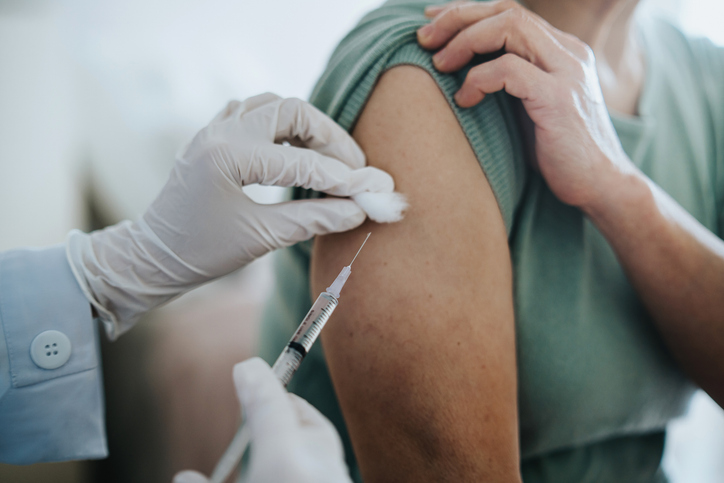After returning from the JPMorgan Healthcare Conference last week, I was pleased to hear that some of the pharmaceutical industry’s most respected leaders were tackling the topic of vaccines head-on.
GSK CEO Emma Walmsley publicly urged the industry to “run towards” conversations about vaccine efficacy, emphasizing transparency, trust, and open dialogue. Her call to action aligns with other industry leaders’ perspectives on building public vaccine confidence.
Moderna CEO Stéphane Bancel advocated for data-driven decisions and collaboration with the new administration. Pfizer CEO Albert Bourla highlighted the risks and opportunities of radical change, emphasizing vaccines as vital healthcare interventions. Sanofi CEO Paul Hudson noted things may be temporarily chaotic with a new administration, and that there may be a call for even more transparency. I concur with all of the above.
Erosion of trust
Vaccine hesitancy isn’t new, but the scale of resistance we’re witnessing today is unprecedented. A 2021 study published in The Lancet found that vaccine confidence varies widely across countries, with trust particularly fragile in regions where misinformation and distrust of institutions are pervasive. The COVID-19 pandemic revealed this to us. Despite the remarkable speed and efficacy of COVID-19 vaccines, the general public was leery about safety, concerns over government mandates, and a relentless tide of disinformation on social media.

The reasons for vaccine hesitancy are complex, encompassing fear of side effects, philosophical beliefs, and historical abuses of medical trust, particularly in marginalized communities. For instance, the legacy of unethical experiments like the Tuskegee Syphilis Study has understandably left some communities wary of public health initiatives. Addressing these concerns requires more than repeating the mantra “vaccines are safe and effective.” It demands a concerted effort to listen, engage, and build trust through transparency.
Transparency is a necessity. People are more likely to trust vaccine recommendations when they feel fully informed about the science, the risks, and the benefits. This means sharing success stories and openly acknowledging uncertainties and potential side effects.
Pillar of trust
For example, during the COVID-19 vaccine rollout, concerns about rare but serious side effects, such as blood clots linked to certain vaccines, were sometimes met with confusing or delayed communication. While these risks were statistically small, the lack of clear and immediate messaging allowed fear to flourish.
Transparency must also extend to how vaccines are developed and approved. The rapid development of COVID-19 vaccines led some to question whether corners had been cut. While the speed was a testament to decades of prior research and unprecedented global collaboration, this nuance was lost instead of applauded.
Explaining the rigorous testing, oversight, and monitoring processes in plain language can go a long way toward dispelling fears and fostering trust.
Transparency alone isn’t enough; we must proactively combat misinformation. Social media platforms play an outsized role in spreading vaccine myths, from false claims about infertility to baseless conspiracy theories about microchips. These narratives thrive in the absence of accessible, accurate information.
Social media campaigns, engaging visuals, and collaborations with trusted community leaders can help counter falsehoods with facts. Importantly, these efforts focus on empathy and understanding, acknowledging the emotions and fears that drive vaccine hesitancy while providing clear, evidence-based answers.
Engaging communities
One of the most effective ways to build vaccine trust is through grassroots engagement. Community leaders, religious figures, and local healthcare providers often have a level of confidence that national or global institutions cannot match. By partnering with these trusted voices, public health campaigns can deliver messages that resonate on a personal level.
Programs that address specific community concerns have shown remarkable success. For example, in historically low vaccination rates, outreach initiatives that included community discussions, mobile clinics, and bilingual materials significantly increased vaccine uptake. These efforts demonstrate that trust is built not through top-down mandates but through relationships and respect.
Building vaccine trust is not solely the responsibility of governments or health agencies. Biotech and pharma companies must also play their part by being open about pricing, manufacturing, and safety data. Too often, perceptions of corporate greed undermine confidence in vaccines. Demonstrating a commitment to public health over profit can help counteract this narrative.
Similarly, individuals have a role to play. Sharing accurate information, engaging in respectful dialogue, and correcting misconceptions within our circles can create ripple effects that strengthen community trust.
The path forward
The stakes couldn’t be higher. Vaccine hesitancy not only endangers individual lives but also undermines herd immunity, putting entire communities at risk. As we face ongoing and future health crises, from seasonal influenza to emerging pandemics, rebuilding trust in vaccines is a moral and practical imperative.
This effort starts with transparency. As we begin this year with a new president and administration, I call on all our elected officials to help close the trust gap by openly addressing concerns, acknowledging uncertainties, and committing to honest communication.
It’s time for a new era of public health—one where vaccines are not just seen as a scientific triumph but as a shared commitment to the well-being of all.
David Dodd is president, CEO, and chairman of GeoVax, a clinical-stage biotech company developing vaccines and immunotherapies against infectious diseases and cancers using proprietary platforms.



